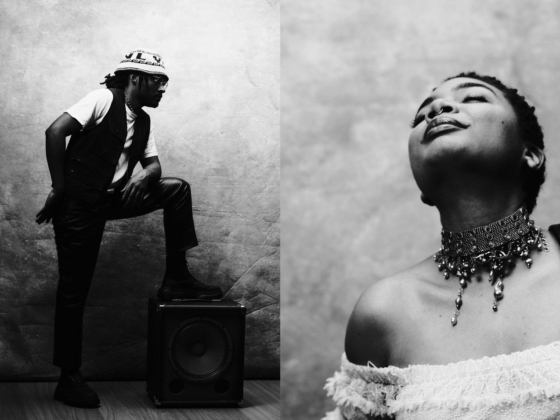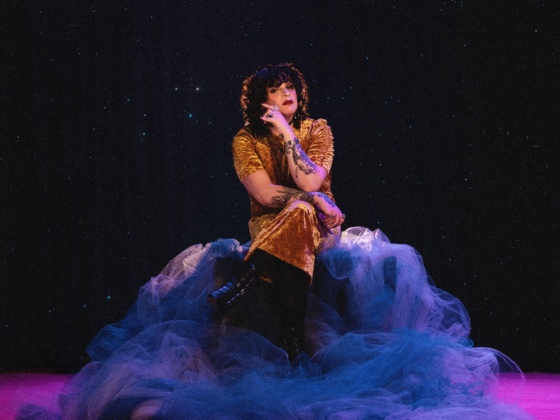The funky creativity of Ata Kak remains unrivaled, even thirty years after his only full-length release. This year, longtime fans were gifted with something new to fall in love with.
Batakari is six vivacious songs; three previously released as singles, and three brand new tracks.
The first two songs on the EP are "Batakari" and "DJ," both unveiled within the past months as singles. These songs were the perfect choice to prime listeners for Ata Kak's blend between the past and the present of his style.
Like his previous work, the tracks are high energy and engaging, with his signature blend of Twi rap, electronic music, and funk—but there is an intricacy to the production contrasts the raw, layered recordings of Obaa Sima. Because of that, these may be the perfect tracks to introduce a new listener to his body of work.
Up next is "Medoba," which stands out from the beginning as a different instrumental direction than the rest of his works, using a traditional Ghanian Akan harp to contrast the boldness of the electronic drums. When it seems like there's no way he could possibly do his thing over the smooth melody, he jumps in and takes you right back into his world, singing and rapping and scatting "shubede-pop-pop-dupop" until it fades out in the same harmonious way that it started.
"Osoowa" is in many ways the most reminiscent of his 1994 album, with a stylish hook and synth chords that endear listeners from the get-go as he sings about a good-looking girl who is not quite as beautiful on the inside. Along with the warm support of a back up singer, Ata Kak's effortless vocals with make this song one of the catchiest of the bunch.
Released in August, "Yasi Town" was the first Ata Kak single in over 30 years. With a departure from his usual vocal style, the song is dedicated to older men and women hitting the town, a critically under-addressed subject in songwriting. He sings rather than raps over one of his classic synth loops: "Nkokora ne mmerewa moma yengye yani" (come, oldsters, and let’s have fun). One notable moment of pure stylistic gold comes during the bridge, where after a chorus of la la la's, he slides up into a high-pitched auto-tuned run.
The journey comes to a close with "Kae," his first entirely instrumental piece as Ata Kak. Though the sounds in themselves are quite simple, the blend of synths and percussion come together in an engaging arrangement of jubilance. The final product speaks as much to his flair as any vocals ever have, inspiring spontaneity and movement at their every turn.
Ata Kak is irreplicable in his approach; a musical charcuterie board, a museum full of strange memorabilia, the antithesis to trend and a beautifully confusing approach to nostalgia. In all ways, this collection of songs feels like a contribution to the joy of music. That's is what it's all about—bringing together an innumerable blend of influences and turning it into something unrecognizable.
Batakari is timeless, and without a target audience. It's just music, and it might be the best that there is.









